|
I was recently interviewed for a sweet podcast series, supporting the Alternative Education Resource Organization (AERO)'s overall Education Revolution.
I had a wide-ranging chat with Jerry Mintz on my adventures so far; what I've seen, learned, and how there is hope for these ideas in public school systems as well. You can listen to the podcast below; hope this is insightful for some of you!
0 Comments
Recently the state and future of public education have been one hot topic in North America, with the dramatic shift in US administration.
Now feels like a fitting time to share the perspective of an engaged voice in US Public Schools, Natalie Bradley Overton. Natalie has built her career in education, currently working with Blue Engine, an organization dedicated to preparing students in low-income areas for college. Blue Engine works by involving BETAs (Blue Engine Teaching Assistants) in classrooms with full-time teachers, increasing the direct instruction students receive. As the current Director of Diversity, Equity and Inclusivity for the organization, Natalie plays an important role in broadening and deepening the work of Blue Engine and it's educators. Last spring, I spent a day in Washington Heights with Natalie, met a few BETAs and visited classrooms in sessions at Blue Engine's flagship partner school, WHEELS (Washington Heights Expeditionary Learning School). It was a special visit and a special community. I'm excited to share this video, the next in the "Educators Who Inspire" series, especially at this unprecedented turning point. As Natalie explains, "We must be ready to do the work". (Fun Fact: President Obama gave a nod to Blue Engine in a 2014 speech, which you can see here.)
As I come to the end of a year of exploration and self-directed research, I feel overwhelmed yet hopeful, thanks to all the ideas I have now seen in practice. These ideas include: individualized higher education; outdoor education; systems and critical thinking; arts as empowerment; redefining "success"; purposeful technology use; marginalized youth as community leaders; and enabling learners to direct more of their learning.
In trying to combine my research 'highlights' with my own vision for future learning, I began building a framework to facilitate the design of emerging programs. Inspired by the Business Model Canvas, I call it the "EduModels Canvas", a strategy tool to help us think about both the big picture and the details involved in redesigning learning programs.
Along with inspiring a new, more systematic approach to designing programs, my other hope is that we are able to improve existing school systems, using some of the principles I observed this past year.
These principles, as well as a quick explanation of the "EduModels Canvas", are outlined in this final section of my talk from AERO 2016: What Next? (Part 5 of 5) from edumodels on Vimeo.
Thanks for your continued interest and support throughout this project. Special thanks to all of the educational innovators who graciously shared their lives, work and visions with me throughout this past year - you have inspired me to continue my own work.
I look forward to continuing to share the Educators Who Inspire video series, and to collaborating with some of you in spaces of innovation and educational access!
The final lesson I learned over the past year of school visits and interviews focused on the unique set of challenges and strengths each model faced. Being clear on these strengths and challenges, is critical to improving programs.
Transparency around the uniqueness of each model also allows us to understand differing priorities, while acknowledging common factors that do exist in innovative alternatives (which I'll get to in my post next week!)
Here is this quick lesson shared at the AERO conference:
From the beautiful Green School in Bali, to the inspiring Dharavi Art Room in Bombay, another recurring point of learning for me was around access. Educational access isn't a new concern in education, yet I haven't found it to be a priority in the design of many innovative and progressive models.
(Dharavi Art Room and the School in the Cloud/SOLE Colombia are great examples of programs designed to increase access, as is the sliding scale for tuition that some independent alternatives are implementing.)
Here is the "lesson" shared at AERO 2016 on this issue. Look forward to sharing the final two parts to this talk next week!
Have you ever wondered what school may be like on the road? Have you ever wished you could break away from home and explore new roots? Recently (at AERO 2016), I chatted with one parent who decided to do just that. Along with his partner and their five year old son, Spencer has been spending this year driving around the country, learning and living along the way. Here are his responses to some questions I was curious about! (Feel free to follow Spencer's journey on Instagram: @spencerbabcock.) How would you describe the adventure you and your family are currently on? I would describe our adventure as two part. Part quest to find interesting new experiences and part quest to find a place. A place that has a community that we feel we can connect with and feels like the right spot to put down some roots. We live and travel around in a 1977 Dodge class c RV. We have renovated the inside and out, complete with solar so we can be off the grid. We tow a little Geo Metro car for side trips. We have also brought with us our big old Dutch Shepherd dog Baxter, five house plants, our bikes, and an inter-tube for floating rivers. Some might describe our journey as Road Schooling. What inspired you to take this step? We were inspired to take this journey after we got back to the U.S. after living and volunteering for a year and a half in an extremely remote part of Northeast India, in the Himalayas near Bhutan and Tibet. We were unsure where we belonged after that rich experience. The idea of exploring just seemed like the right thing to do. First, don't assume that you have no other options. Read, read, and read some more, about other options. Challenge your own assumptions about learning. Challenge how you think about the what, when, where, why, and how things "have" to be learned. Can you share a story of a day in the life of this on-the-road journey? Connecting with different people has been some of the most rewarding experiences in our travels and a great way to learn new things. One such experience was when we did a work exchange with a guy (A.) on his remote homestead in northern New Mexico. We learned so many things while we were helping A. keep up with many projects. Kai, my son, helped right along side us as we collected eggs from the hundred or so chickens, learned how to milk a goat, played with dogs, helped feed two Ravens, watered the many green house gardens and helped build a pumice stone house. We also learned about the solar and wind power system, bio gas digester that created gas for cooking, solar hot water heater for taking hot showers and the straw bale house where we cooked and hung out. There is so much to learn from other people. What are some insights you’ve gained from the past year? I think one of the biggest insights we have gained from traveling has been the constant opportunity to learn new things in authentic, up close ways. We learn from interacting with many different people, cultures, histories of places, geography, and ecology of the landscape. We can't help but have real experiences and learn from the things around us because we are immersed in them. We have found joy in taking time to really see more. Life on the road with no deadline or destination brings about a fundamental shift in how we think about exploring. It allows us time to take the slow side roads and pause to look at unique features. We have time to stop and play along the way. We can stop for an hour, a day, a week or whatever, as we wish. How does your son feel about this experience? Kai is really enjoying the experience. The other day someone asked him if we were on vacation. He said, "We are always on vacation!" At times it does feel like that. At another time he said he is ready for a house without wheels so he can have a fish. He said, "We can't have one now because the fish will get a headache from sloshing around and the water will spill out of the fish bowl." One day he will get his wish for a fish without the sloshing. What has your personal experience with education been like? My own experience with education growing up was mostly conventional public school. However, when I was six I asked my parents for art classes for Christmas. I didn't want just any art classes. I wanted to do "real" art like I saw masters from the Renaissance had created. We went to half a dozen different classes around town looking for that "real" art class. I finally found an after school art program that had artists from the community sharing their skills with kids. I loved it. I ended up taking classes there from age six to eighteen. The thing that was interesting about that art program was that it wasn't a teacher sitting in front of the class teaching. Each class focused on a subject like maybe, a person sitting for us for a portrait and a material like oil paint but then there was very little instruction. We would learn through intuition, practice, experimenting and experience. The artists were there to mentor and support us, but they were not there to lead us in a lesson. It was a big contrast to learning in school with everything being dictated by a teacher or a textbook instead of real experience. I think this translated into a different experience in college too. Often if a subject really interested me then I would put in much more effort then was required instead of just doing the minimum to get the "A" grade or to just pass the class. Later, when we had our son and I began to think about what "school" would look like for him. I read about many different education models. The more I read about self-directed learning approaches like unschooling, free schooling, democratic schooling, Agile Learning Centers, etc. It clicked for me because I had taken those art classes with the intuitive hands off approach to learning. I was excited when I realized that the same self-directed learning approach could be applied to learning anything. I knew what freedom in learning looked like and felt like. It feels so natural and right on so many levels, both as a parent and a learner. What are your hopes for your child’s education, and more broadly, for life? My hope for my son is for him to grow up loving many things: life, learning how to learn, people and the world around him. If he grows to love those things he will be a success. I think he will figure out how to earn money as a side benefit, but it will be less likely to control his life. I care more about why and how my son learns then what specific content he learns. I have to keep asking myself, is he learning something because he wants to learn it, or because I or someone else wants him to learn it? Of course I want him to learn some basic things but I feel he will learn those basics more deeply and remember them more fully if I hold the space for him and I'm patient and wait for his desire to learn something come from him. What advice do you have for other parents who are frustrated with conventional schooling models? Some thoughts that may be helpful to other parents who are frustrated with the conventional school model would be, first, don't assume that you have no other options. Read, read, and read some more, about other options. Challenge your own assumptions about learning. Challenge how you think about the what, when, where, why, and how things "have" to be learned. I would also encourage them to consider the thought that just because our society and culture has done something a certain way for a long time doesn't mean it really is the right thing for society in general or the right thing for every individual. If you are considering moving towards a more self-directed approach, be patient with yourself and your kids. It takes time to shift your mindset from an old paradigm. About Spencer:
Idea guy, artist, simplifier, traveler, lover of mountains and father of a puddle-jumping boy. My journey has taken me many places from working in a rice patty in Malaysia, to an art gallery in New York City, to building construction in the Phoenix Arizona sun. I've also worked with youth in a variety of ways, from helping struggling teens in wilderness therapy in the dessert, to teaching in a middle school classroom in a suburb, to helping kids paint pictures of elephants at the zoo. I have worked for nonprofits, corporations, and volunteered in many ways. I enjoy helping businesses and nonprofits tell their stories through design and video to support them in their efforts to build community and promote their work. I'm also passionate to find ways to support efforts to help more kids have the opportunities to learn through natural curiosity. These amazing experiences have introduced me to wonderful people, cultures, new ideas and expanded my love for the world. I can be found perusing the latest tech news, enjoying a climb up a mountain or thinking up something remarkable with colleagues and clients. Follow the family's roadschooling adventure on Instagram: @spencerbabcock
In Portland, Oregon last week, I had the pleasure of presenting at AERO 2016 (more to come on that!).
My favourite part of these conferences is the unique connection I find with individuals. One such individual was Tyler Barley, a young man in an innovative degree program at RIT (Rochester Institute of Technology), New York. Connections and Colonization During an early Q&A on day 1, Tyler expressed a powerful insight, questioning who the faces were leading "progressive" programs for Aboriginal youth. He pointed out the need to address the imbalances that continue from times of colonization. He was by far the most refreshing voice in this room of educators, parents, students and academics. I remember thinking, "Whoa. Who is this guy? And why isn't he up here giving a talk?!" Later on, I sat outside with Tyler and Wendy (an Academic Advisor from the School of Individualized Study (SOIS) at RIT). We ended up chatting through an entire workshop slot, about everything from his earlier comments, to the resilience of young people, and the power of Nature. Individualized Learning Since I started lecturing in 2011, I've been thinking about the potential for more individualized learning in higher ed, mainly because I've experienced how uninterested many students can be in standard programs. (I used to ask students on Day 1, "Why are you taking this course?", hoping to hear about their interests. The most common response I would get though, was "'Because we have to!!") The program Tyler is in through the SOIS on the other hand, allows the learner to tailor the subject areas in their program, leading to a unique and specialized interest area. Other Applications? This program reminds me of liberal arts programs that friends have taken at the Master's level, At the undergrad level though, I would love to see and help design more of these offerings, where students who have a specific interest area / key question / challenge they wanted to address, could tailor their studies accordingly. Of course, foundations courses in many fields can be useful, but the ability to weave in more catered combinations of courses feels like the way of the future (/present!) in my opinion. Check out the quick video above, featuring the stories of SOIS and Tyler. Thanks to Tyler and Wendy for sharing their time with me in Portland!
After a bit of downtime this summer, I am pleased to introduce you to Maysaa Bazna, the Director and Founder of Pono in New York City. Pono is a small alternative, democratic school that also places emphasis on outdoor education, with two days spent outdoors each week. The school also offers a sliding scale for tuition in an attempt to address access issues.
Maysaa has an interesting academic background, having earned multiple Masters degrees in reading and learning disabilities, and an Ed.D. in curriculum and teaching. Her research delved into the history of education and systems of learning across cultures and periods, giving her insight into what was valuable for learning today. Prior to founding Pono, she was a Professor at Columbia University's Teacher's college. After having a daughter of her own, Maysaa realized she was unhappy with the options available for her schooling, and thus was born the inspiration behind Pono (meaning to be in balance). I spent a lovely day with Maysaa and the other facilitators and kids at Pono, joining them on an outdoor day with a naturalist in Central Park, followed by a fun afternoon of them solving their way out of an "escape room". In this video, Maysaa speaks about the need to take children's interests in learning seriously, the value of visiting teachers, and how kids excel in academics when they are ready and eager to learn.
Maysaa is definitely an inspiring educator and I'm so happy to be able to share part of Pono's story!
As I continue my project of interviewing inspiring educators across several contexts and countries, my most recent adventure was in New York, where I visited programs ranging from a publicly funded school for girls in Washington Heights, to a sweet little independent alternative in East Harlem. As I traveled from the southern end of Manhattan in "Fi Di" (the financial district), through midtown, uptown to Harlem, then to Washington Heights, I was struck by the contrasts I experienced: skyscrapers in Fi Di versus tiny delis in Washington Heights ("Sigue mami!! Coffee?"); sleek high end shops vs piles of garbage on street corners; men in suits blankly staring past homeless people on subways; and my range of friends from freelance artists to those working at the UN. All of these contrasts helped to frame the context of each of the schools I visited, to better understand how schools served their communities. The primary goal of the all-girls leadership school I visited was to help every single student get into college. Many in the alternative space would scoff at that, explaining how grades are outdated and how college shouldn't be the end goal of high school education. (I know this, because I argue against grades all the time!) But after seeing these confident girls in action, giving us a tour, presenting at the school "STEM" fair, mentoring younger students, you realize the danger in confusing the means with the ends. Getting into college is a ticket to opportunity for these girls, to jobs and experiences that they or their families would not access otherwise. When you pay attention to the inequalities inherent in our economic and social systems, you understand why navigating these systems still matters for the vast majority of people. Why context matters. On the other end of the spectrum, the small independent alternative focused on a democratic approach, where students are actively involved in deciding what they will learn. They participate in two outdoor days every week (I was there on a day in Central Park with a naturalist). This model felt like a breath of fresh air. Here too, though, context matters. Parents who send their kids to this alternative actively sought an option that didn't involve grades, prioritize the child's freedom in learning, and who may have considered homeschooling otherwise. I also couldn't ignore the reality that most parents choosing this model come from a higher income bracket.
It is still challenging to compare models, but I am learning to acknowledge the priorities of each one. I had a fantastic time exploring New York's schools. I look forward to sharing spotlight videos from my time there in the coming weeks!
I am pleased to introduce you to Juan Camilo Cardenas, Associate Professor in the School of Economics at Los Andes University, Bogota. Juan Camilo is a leader in the field of Experimental Economics in Latin America, and has been a Fulbright Scholar and visiting scholar at Harvard University. His research has focused on human behaviour in solving social dilemmas, and he brings his experimental approach in these areas into the classroom with his students.
Juan Camilo fit me in for a meeting after his class one afternoon on the beautiful Los Andes campus. He gave me a tour of campus as well, with students gathering on campus to watch an important futbol match for Colombia. After having a quick coffee, Prof. Cardenas graciously allowed me to interview him despite having another meeting to run to - he was efficient with his words! :) In this video, Juan Camilo speaks about the importance of learning in the field rather than from textbooks, and the need for a more participatory approach to teaching in university classrooms:
I am very grateful to Juan Camilo for taking the time to meet with me that day. I always considered studying Economics more deeply in undergrad; if I had experienced profs like Juan Camilo, I would have definitely taken the plunge!!
For more on Juan Camilo Cardenas' work, visit his Faculty Page. |
Categories
All
AuthorA passionate educator.. on a quest for a schooling model to love! Archives
August 2017
|
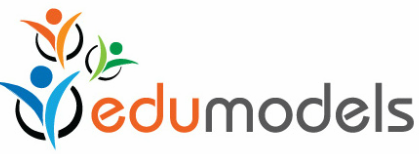
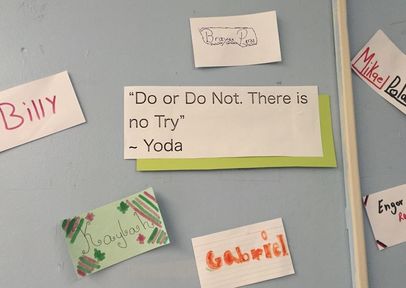
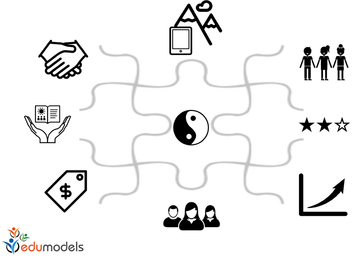

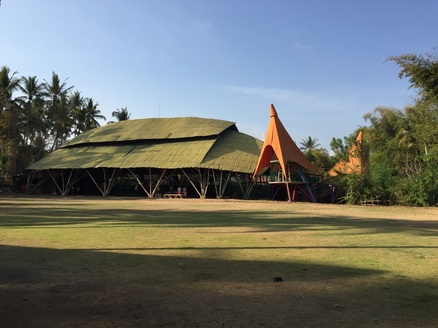
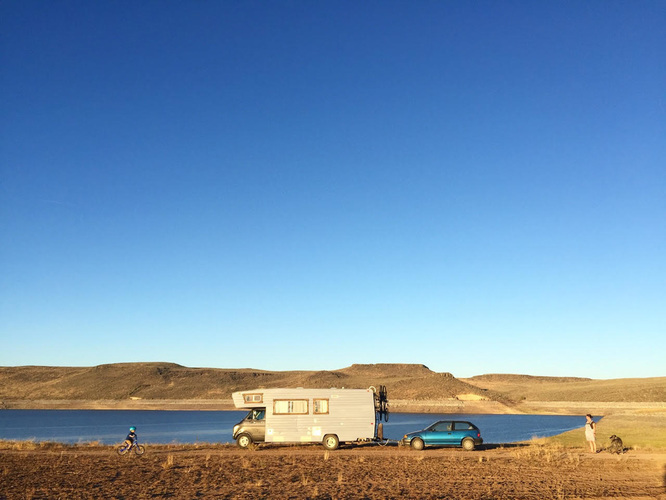
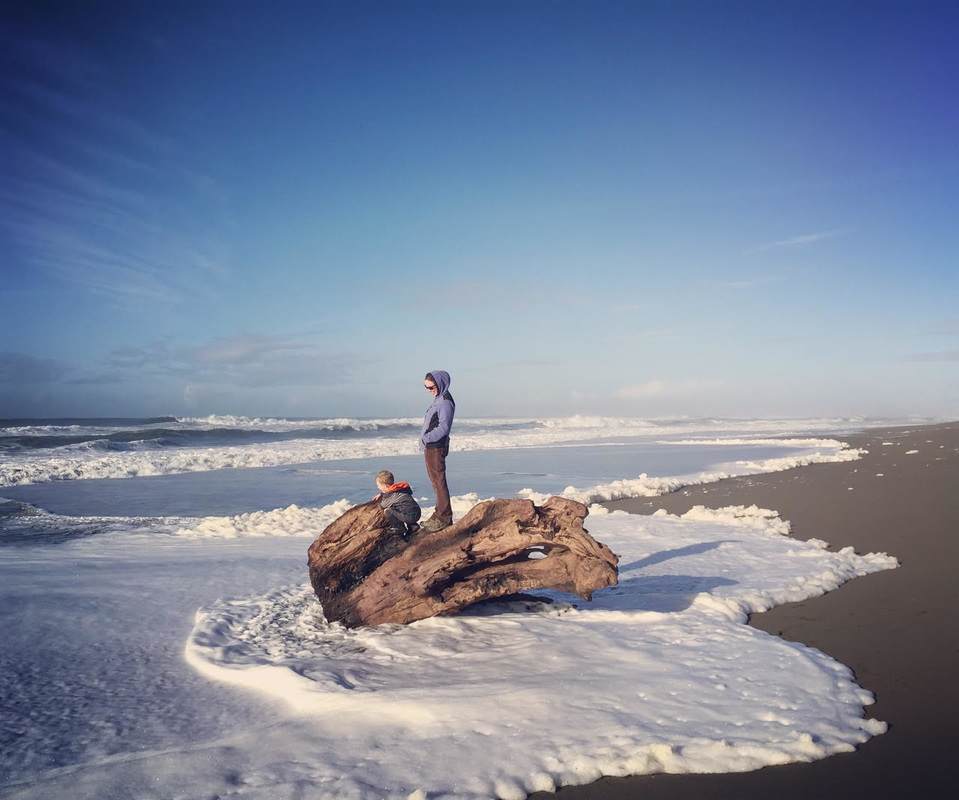
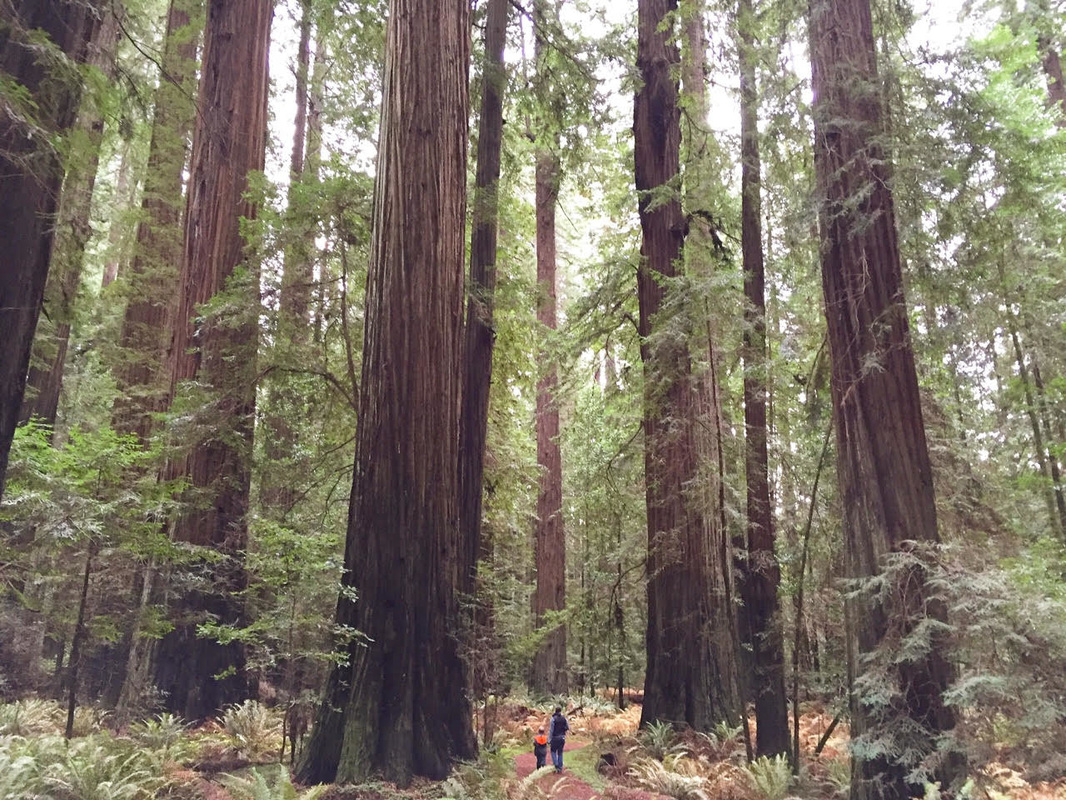
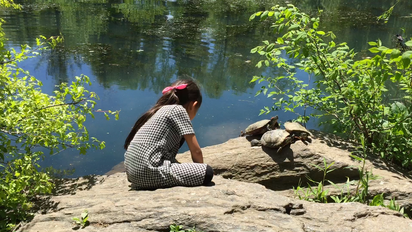
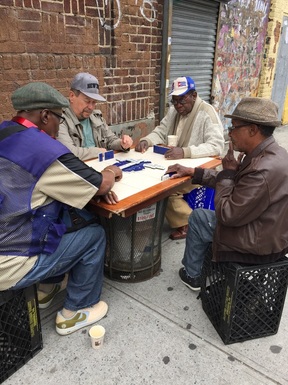
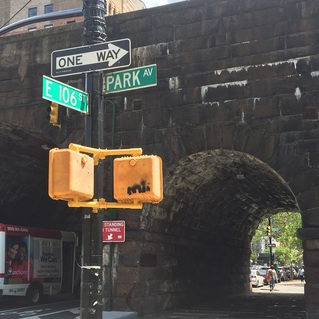
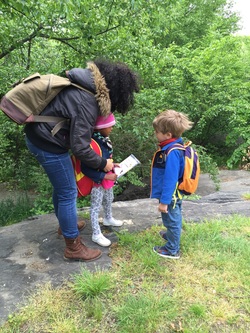
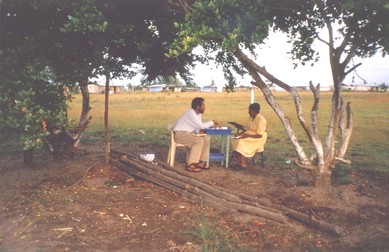
 RSS Feed
RSS Feed
